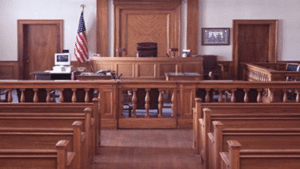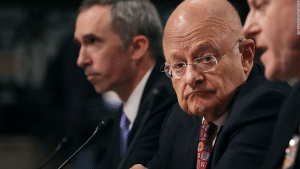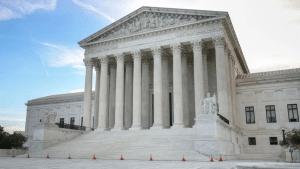What is a FISA Court? The FISA court is a special court in the government. It helps decide on matters related to spying and intelligence gathering. Let’s learn more about the FISA court in this article.
The FISA court’s fundamental job is to check and say “OK” or “no” when the public authority requests to watch and pay attention to individuals who may be spies or psychological oppressors from different nations in the US. They likewise choose if it’s alright to watch individuals who are accepted to assist outside nations with spying or illegal intimidation.
The FISA court is a mystery court where the public authority discusses secret things to protect our country. The court has judges who are picked by a truly significant appointed authority, and they work for a specific number of years to ensure everything is fair.
Before we learn about the key functions and jurisdictions of the FISA court and explore notable cases heard by the court, let’s first answer the primary question, “What is a FISA court?”
What is a FISA court?
The FISA court is a special court made by the government to help keep the country safe from bad things. It gives permission for the government to watch and gather information about people who might be a danger to our country. This court is different from regular courts because it’s secret, meaning they don’t talk about what happens inside to everyone. They only deal with cases about people who could be working for other countries or doing things that might hurt our country’s safety.
The FISA court has special judges picked by a very important judge, and they work for different periods of time. The court keeps things super secret to protect our country. When the FBI or NSA wants to watch someone, they have to ask a FISA court judge and show good reasons why that person might be working for another country and doing things that could hurt us.
In the FISA court, only the government talks to the judge, and the person being watched isn’t there. The judges check if the government has enough good reasons to watch that person. If everything is okay and follows the rules, they allow the government to keep an eye on them. The court has to be fair, making sure our country stays safe while still respecting people’s privacy.
What are the key functions of the FISA court?
The FISA court is a special court that started in 1978. It helps keep our country safe by watching over spying activities that involve other countries and national security. Below are the key functions of the FISA court:
- Reviewing surveillance applications
- Conducting closed-door proceedings
- Balancing national security and civil liberties
- Authorizing intelligence-gathering activities
- Providing oversight and accountability
Reviewing surveillance applications:
The FISA court checks demands from government bunches like the FBI or NSA who need to watch specific individuals. They ensure there are valid justifications to accept these individuals may be working for another nation and causing things that could damage our country. The appointed authorities take a gander at the verification given to choose if it observes the guidelines prior to permitting the public authority to watch them.
Conducting closed-door proceedings:
The FISA court is different from normal courts because it keeps everything very secret. The government talks to the judge without the person being watched or their lawyer there. This secrecy is important to keep our country safe by protecting important information.
Balancing national security and civil liberties:
The FISA court has significant work: it ensures the public authority can guard us while likewise regarding our security. The appointed authorities take a gander at the proof to ensure it keeps the guidelines and doesn’t attack individuals’ security to an extreme. This is truly critical to ensure everybody is dealt with reasonably and our privileges are secured.
Authorizing intelligence-gathering activities:
The FISA court not just permits the public authority to watch specific individuals, yet it likewise allows them to gather data and watch out for things to protect our country from risks outside. They do this to ensure they are adhering to the guidelines and possibly safeguarding our country when it’s truly essential.
Providing oversight and accountability:
The FISA court resembles a guard dog, ensuring the public authority doesn’t keep an eye on individuals to an extreme. It really takes a look at the public authority’s solicitations to keep an eye on others, ensuring they observe the guidelines and don’t disregard individuals’ privileges. Despite the fact that certain individuals could do without that it’s confidential, the court means a lot to keep a harmony between our wellbeing and our freedoms.
What jurisdictions does a FISA court have?
The FISA court has certain rules it has to follow. Here is a breakdown of its jurisdictions:
- Surveillance warrants for foreign powers and agents
- Monitoring U.S. citizens and permanent residents
- Approving physical searches and electronic surveillance
- Oversight of intelligence-gathering programs
- Handling classified and sensitive information
Surveillance warrants for foreign powers and agents:
The FISA court can allow the public authority to watch and pay attention to individuals who may be working for different nations or psychological militant gatherings. This assists the public authority with watching out for the individuals who could hurt our country. The court, assuming there are valid justifications to accept these individuals, is engaged with exercises that could be terrible for the US prior to permitting the public authority to keep an eye on them.
Monitoring U.S. citizens and permanent residents:
The FISA court ordinarily centers around individuals from different nations, yet in some cases it can permit the public authority to watch Americans as well, provided that there’s a valid justification to accept they’re working for another nation and may be a danger to our nation’s security. This helps guard Americans while still regarding their freedoms.
Approving physical searches and electronic surveillance:
The FISA court can likewise permit the public authority to look through places like homes and workplaces on the off chance that they accept there may be data about spying or psychological warfare there. They do this to protect our nation, and they ensure it’s truly required and keep the guidelines prior to permitting these inquiries.
Oversight of intelligence-gathering programs:
The FISA court can watch over big programs where the government collects a lot of information about people from other countries. They make sure it’s really necessary and follow the rules before allowing the government to do it. This helps stop the government from doing things they shouldn’t and keeps people’s privacy safe.
Handling classified and sensitive information:
The FISA court deals with secret and important stuff. They have a safe place to talk about secret things so that our country stays safe. This way, the government can share important information with the court without it getting into the wrong hands.
How does a FISA court work?
The FISA court follows specific rules to keep our country safe while also protecting people’s privacy. They make sure that what they do helps our nation’s security and respects everyone’s personal privacy. Here is how the FISA court operates:
- Application submission
- FISA judge review
- Closed-door proceedings
- Judicial decision
- Ongoing oversight
Application submission:
Government groups like the FBI or NSA need to inquire as to whether they need to watch specific individuals. They need to give a ton of data about who they need to watch, why they imagine that individual may be working for another nation, and what they’re doing that could be hurtful to our country. They need to show valid justifications to accept this individual may be associated with spying or psychological oppression.
FISA judge review:
The FISA court has special judges who look at the requests from the government. These judges check if the reasons given are good enough and if they follow the rules. They really pay attention to the information and might ask the government for more details before deciding what to do.
Closed-door proceedings:
The FISA court works in secret, meaning they keep everything private. Only the government talks to the judge, and the person being watched and their lawyer aren’t there. This secrecy is important to protect important information that keeps our country safe. They can talk openly about secret things without worrying about bad people finding out.
Judicial decision:
The FISA court judge looks at all the information and decides whether the government can watch a specific person. If everything follows the rules, the judge gives permission. This lets the government listen to phone calls or check online messages of that person. The judge might also set rules to make sure everything is done legally.
Ongoing oversight:
After giving permission, the FISA court keeps an eye on what the government is doing. They make sure the government follows the rules and only watches the right things. If there are concerns that the government is overstepping its boundaries or not adhering to the rules, the court can intervene to halt their actions or modify their permissions. This ensures that people’s privacy is respected and prevents the government from abusing its power.
What powers does a FISA court hold?
The FISA court has special rules to make sure they watch over and approve activities that help keep our country safe. Here are the powers held by the FISA court:
- Issuing surveillance warrants
- Reviewing and approving applications
- Imposing limitations and conditions
- Conducting hearings and adjudicating disputes
- Overseeing intelligence-gathering programs
Issuing surveillance warrants:
The FISA court can give permission to the government to watch or search people who might be working for other countries and could be a threat to our country. They only do this if they have good reasons to believe that person is involved in something that could harm our national security.
Reviewing and approving applications:
The FISA court can check requests from the government to watch people. The judges look at the proof and rules to make sure everything is okay. If it is, they allow the government to keep an eye on that person.
Imposing limitations and conditions:
When the FISA court allows the government to watch someone, they can say what the government is allowed to do. They might decide how much they can watch, what kind of messages they can see, and how long they can keep watching. This way, they make sure the government only looks at the right things and doesn’t invade other people’s privacy who are not part of the investigation.
Conducting hearings and adjudicating disputes:
The FISA court holds meetings where both the government and, at times, the individuals under surveillance can present their perspectives. The court is responsible for making decisions about permissible actions, ensuring fairness and adherence to the rules in all proceedings. These meetings help everyone have a fair chance to speak up and make sure things are checked properly.
Overseeing intelligence-gathering programs:
The FISA court doesn’t just watch specific people – it can also keep an eye on bigger programs the government uses to collect lots of information about people from other countries. The court checks if these programs are really needed and if they follow the rules. This way, the court makes sure the government doesn’t misuse its power and that everything they do is legal.
What notable cases were heard by the FISA court?
The FISA court is a secret court that deals with important cases about our country’s safety. Even though most of what they do is secret, some important cases have become known to the public. Here is an overview of these cases:
- Patriot act and mass data collection
- PRISM surveillance program
- Call records program
- Surveillance of foreign agents and terror suspects
Patriot act and mass data collection:
One big case involving the FISA court happened after the 9/11 attacks. There was a law known as the Patriot Act, and a section of it enabled the government to gather extensive information, including phone records, without requiring individualized permission from each person. The FISA court said it was okay to do this. Later, in 2013, a person named Edward Snowden told everyone about it, and people around the world started talking about privacy, spying, and when the government should be allowed to collect information.
PRISM surveillance program:
Edward Snowden told everyone about a program called PRISM, where the government could look at information from big tech companies like Google and Facebook. The FISA court said it was okay for them to do this so they could see emails, pictures, and videos people were sharing online. This made a lot of people worried about their privacy and how much the government could watch us on the internet.
Call records program:
In 2013, we found out that the FISA court said it was okay for the government to collect a lot of phone records from many Americans, like the numbers they called and how long they talked. A lot of people didn’t like this, and it caused a big debate. Eventually, a new law called the USA Freedom Act in 2015 made some rules to stop the government from collecting so much data from people’s phones.
Surveillance of foreign agents and terror suspects:
The FISA court usually deals with secret cases, but we do know that they give permission for the government to watch people who might be spies or terrorists. These cases are the main things the court handles, making sure the government follows the rules and respects people’s rights.
Conclusion:
The FISA Court is a special U.S. court that ensures our country stays safe from dangers outside, like spies and threats. The law was enacted in 1978. The court reviews government requests to monitor specific individuals, ensuring it is necessary to maintain our safety while upholding people’s rights. They do this secretly to protect important information.
The FISA Court is a secret court that helps balance keeping our country safe and protecting people’s freedoms. As technology improves, it’s harder for the court to decide what’s okay when it comes to watching people online. People are talking a lot about this, saying we need to be careful and open and make good laws to ensure our safety and rights are respected in our changing world.


